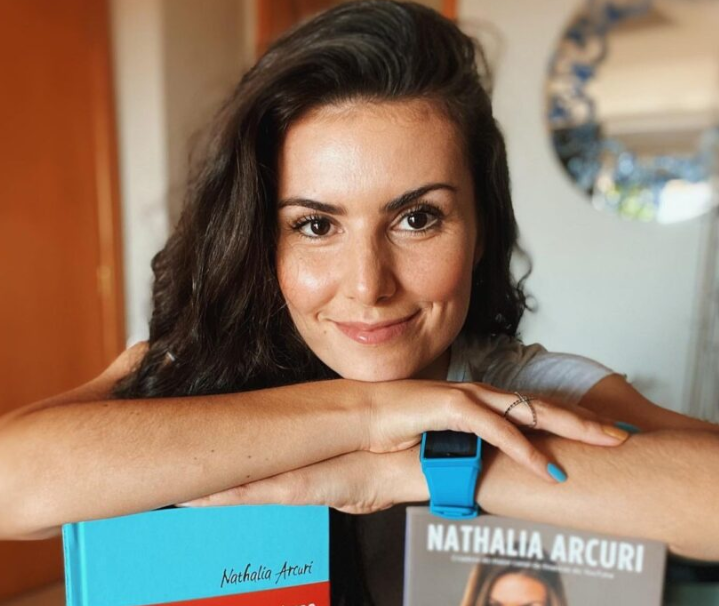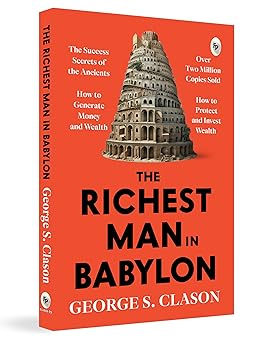Personal Finances 💰| How to Manage your Money? The 70/30 Method! [EN/PT]

What is your method of managing your income? If you don't have one yet or want to be inspired by a new method, created by digital influencer Nathalia Arcuri, come check out the 70/30 Method, in which income is divided into two main blocks, helping you control your money. After all, if you don't control it, money will control you! We will also compare this method with the teachings of the book “The Richest Man in Babylon”, seeking to find similarities in the content.
I'll be much appreaciated if you Upvote, Reblogs or give any Tips ( PIZZA 🍕, PGM 🎮, LOLZ 😆, ALIVE ❤️, etc ). Thanks and have good reading! 🍀

[ENGLISH VERSION]
The 70/30 method for revenue management!

The digital influencer in the personal finance niche, Nathalia Arcuri, owner of the YouTube channel/Company Me Poupe! developed videos and articles about a revenue management method, called the 70/30 Method, which can help, serving as a guide, for those who have doubts on this subject. It is worth remembering that, even though the method presents defined percentages for each “cash box”, you are free to adapt it to your reality. If you need a greater flow for one of them, adapt and optimize the method in the best possible way.

Let's start by explaining why it is called the “70/30 Method”. The 30% represents the percentage of money that will be invested for the future, thinking about your goals and retirement. The 70% is the amount of money set aside for you to live in the present, pay your bills, grow by buying books and courses, and also have fun. However, within each block of 70 and 30, we have more divisions.
In the 30%, the influencer sets aside 10% for retirement, which would be investing in good dividend-paying companies, real estate, fixed income, that is, assets that generate passive income that will sustain you in the future. The remaining 20% is for long and medium-term goals, such as a trip, creating a financial reserve, or buying a more expensive product.

Now, regarding the remaining 70% to reach 100%, it is divided into 3 parts, which are not equal. The largest percentage of all, 55%, goes to essential expenses, which would be the entire list of expenses that are part of your basic needs, rent, food, water, electricity, but it is not limited to just that, because there may be something that is essential for you and not for someone else, think about what you could not live without. We also have 5% dedicated to continuing education, which would be the purchase of books, courses, lectures, everything that helps you continue to evolve your mind, because with more knowledge the chances of you improving your income increase.
Finally, there is the part that few consider when the goal is to manage, which is 10% for you to spend however you want, you can use this money to eat out, see a movie, among others, the rule here is that you have fun so you don't go crazy and don't have to wait years to have fun.
70/30 Method x The Richest Man in Babylon

These points of this method can be analyzed and compared with other, already better known, income management content, such as the teachings of the book The Richest Man in Babylon. While Nathalia uses the term “retirement” to represent investments, in the book the author says that you should save at least 10% of everything you earn, because each “gold coin” that you save starts to work for you, generating more money. Thus, we realize that there is a common point that reinforces the idea that this makes sense and should be considered.

In the book “The Richest Man in Babylon”, we no longer have descriptions of how the rest of the money should be spent, which would be what was not invested, but it is said in one passage the following: “Do not buy from the maker of clothes or from the maker of sandals more than you can pay with the rest, and you should still set aside enough to feed yourself, help your neighbor and pay your obligations to the gods.” This shows us the emphasis given to investment as the main use, that is, first pay yourself and then set aside enough to feed yourself, help others and contribute to the gods. Furthermore, in the context of the book, the remaining 90%, if the minimum of 10% were invested, would be distributed in these 3 remaining segments, having another equality between essential expenses and the “enough to meet the needs to feed yourself.”
---


Qual o seu método de gerenciar as suas receitas? Se você ainda não tiver um ou quiser se inspirar em um novo método, criado pela influenciadora digital Nathalia Arcuri, venha conferir o Método 70/30, em que as receitas são divididas em dois blocos principais, ajudando você a controlar o dinheiro, afinal se você não o controla, o dinheiro vai controlar você! Ainda, vamos comparar esse método com ensinamentos do livro “O Homem mais Rico da Babilônia”, buscando encontrar semelhanças nos conteúdos.
Fico agradecido se você upder dar um Upvote, Reblogs ou algum Tips ( PIZZA 🍕, PGM 🎮, LOLZ 😆, ALIVE ❤️, etc ). Obrigado e boa leitura! 🍀

[VERSÃO PORTUGUÊS]
O método 70/30 para gestão de receitas!

A influenciadora digital do nicho de finanças pessoas, Nathalia Arcuri, dona do canal do YouTube/Empresa Me Poupe! desenvolveu vídeos e artigos sobre um método de gerenciamento das receitas, chamado Método 70/30, que pode ajudar, servindo como um norte, para quem tem dúvida nesse assunto. Vale lembrar, que por mais que o método apresente porcentagens definidas para cada “caixa de dinheiro” você é livre para adaptar a sua realidade, se precisar de uma fluxo maior para uma delas, adapte e otimize o método da melhor forma possível.

Vamos começar apresentando o porque ele se chama “Método 70/30”. O 30% representa a porcentagem do dinheiro que será investido para o futuro, pensando nas suas metas e na aposentadoria. Já os 70% é a quantidade de dinheiro separada para você viver o agora, pagar as contas, evoluir comprando livros e cursos e também se divertir. Entretanto, dentro de cada bloco do 70 e do 30 temos mais divisões.
Nos 30%, a influenciadora separa 10% para a aposentadoria, que seria investir em boas empresas pagadoras de dividendos, imóveis, renda fixa, ou seja, ativos geradores de renda passiva que vão te sustentar no futuro. Já os 20% restantes são para aquelas metas de longo e médio prazo, como uma viagem, a criação da sua reserva financeira, compra de algum produto mais caro.

Agora, sobre os 70% restantes para chegar no 100%, é dividido em 3 partes, que não são iguais. A maior porcentagem de todas 55% vai para os gastos essenciais, que seria toda a lista gastos que são da sua necessidade básica, aluguel, comida, água, luz, mas não se limita à apenas isso, porque pode existir algo que é essencial para você e não é para outra pessoa, penso no que você não viveria sem. Temos ainda, 5% voltados para Educação continuada, que seria a compra de livros, cursos, palestras, tudo aquilo que te ajude a continuar evoluindo a sua mente, porque com mais conhecimento as chances de você melhorar a sua receita aumenta.
Por último, vem a parte que poucos consideram quando o objetivo é gerenciar, que é 10% para você gastar como quiser, você pode usar esse dinheiro para comer fora, ver um filme, entre outros, a regra aqui é que você se divirta para não ficar louco e não ter que esperar anos para se divertir.
Método 70/30 x O Homem mais Rico da Babilônia

Esses pontos desse método que podem ser analisados e comparados com outros conteúdos de gerenciamento de receita, já mais conhecidos, como os ensinamentos do livro o Homem mais Rico da Babilônia. Enquanto a Nathalia utiliza o termo “aposentadoria” para representar os investimentos, no livro o autor diz que você deve guardar no mínimo 10% de tudo aquilo que você ganha, porque cada “moeda de ouro”, que você economiza começa a trabalhar para você gerando mais dinheiro. Assim, percebemos que há um ponto em comum o que reforça a ideia de que isso faz sentido e deve ser considerado.

No livro “O Homem mais Rico da Babilônia”, não temos mais descrições sobre como deveria ser gasto o restante do dinheiro, que seria o que não fosse investido, mas é dito em um trecho o seguinte: “Não compre ao fazedor de roupas ou ao fazedor de sandálias mais do que possa pagar com o restante, devendo ainda separar o bastante para alimentar-se, ajudar o próximo e pôr em dia as obrigações com os deuses”. Isso nos mostra a ênfase dada no investimento como uso principal, ou seja, primeiro pague a si mesmo e depois separe o bastante para alimentar-se, ajudar o próximo e contribuir com os deus. Ainda, no contexto do livro o restante, 90% caso fosse investido o mínimo de 10%, ficaria distribuído nesses 3 segmentos restantes, tendo mais uma igualdade que é entre gastos essenciais e o “bastante para alimentar-se”.


If you like Crypto, Play2Earn, Finance or Anime content, consider FOLLOW me, that way you'll receive a notification when new post is done.
Thank you for reading. See ya! 👋👋
Bzzt! Eu uso a regra 50/50, onde 50% é para os gastos presentes e 50% é para investir no futuro! Não é a mesma, mas funciona para mim! #hivebr
AI generated content
Your post was manually curated by @xlety.
Delegate your HP to the hive-br.voter account and earn Hive daily!
🔹 Follow our Curation Trail and don't miss voting! 🔹
Obrigado!
Achei 10% pra diversão muito pouco, mas deu pra passar uma ideia legal o post
Então é como a autora disse: "você é livre para adaptar a sua realidade". Vai colocando mais ou menos em cada "caixa", balanceando tudo. 😀
Obrigado, bom que foi útil.